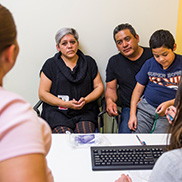- Doctors & Departments
-
Conditions & Advice
- Overview
- Conditions and Symptoms
- Symptom Checker
- Parent Resources
- The Connection Journey
- Calm A Crying Baby
- Sports Articles
- Dosage Tables
- Baby Guide
-
Your Visit
- Overview
- Prepare for Your Visit
- Your Overnight Stay
- Send a Cheer Card
- Family and Patient Resources
- Patient Cost Estimate
- Insurance and Financial Resources
- Online Bill Pay
- Medical Records
- Policies and Procedures
- We Ask Because We Care
Click to find the locations nearest youFind locations by region
See all locations -
Community
- Overview
- Addressing the Youth Mental Health Crisis
- Calendar of Events
- Child Health Advocacy
- Community Health
- Community Partners
- Corporate Relations
- Global Health
- Patient Advocacy
- Patient Stories
- Pediatric Affiliations
- Support Children’s Colorado
- Specialty Outreach Clinics
Your Support Matters
Upcoming Events
Mental Health Town Hall
Tuesday, April 23, 2024Join Children’s Hospital Colorado pediatric experts for a virtual...
-
Research & Innovation
- Overview
- Clinical Trials
- Q: Pediatric Health Advances
- Discoveries and Milestones
- Training and Internships
- Academic Affiliation
- Investigator Resources
- Funding Opportunities
- Center For Innovation
- Support Our Research
- Research Areas

It starts with a Q:
For the latest cutting-edge research, innovative collaborations and remarkable discoveries in child health, read stories from across all our areas of study in Q: Advances and Answers in Pediatric Health.


Health Literacy: Are You In The Know?

hard time understanding basic
healthcare information.
Have you ever visited the doctor and left feeling confused or unsure about what to do next? If you have, you are not alone.
Health literacy is defined as the ability to access, read, understand and use health information in order to care for yourself and your family. In a national study of 6,100 parents, researchers from the New York University School of Medicine found that nearly 30% of parents had a hard time understanding basic healthcare information and nearly 50% had a hard time understanding medication labels.
How to get the most out of your doctor visits
As a parent, you have the right to health information that helps you make important decisions about your child’s health. The three simple techniques listed below can improve health visits for your child and lead to better health for your family.
1) Make sure you understand what your doctor is saying
Doctors and other health care staff go to school for many years, and sometimes they use language that can be hard for people to understand. It’s okay to ask for clarification if they use a word that you don’t know.
Asking questions will also improve your doctor visits. The National Patient Safety Foundation encourages patients and families to ask three questions at every visit.
- What is my main problem?
- What do I need to do?
- Why is it important for me to do this?
At the end of a visit, you can also repeat back to your health care provider what you heard so they you know you understood. Don’t feel embarrassed if you didn’t understand something. Doctors and other health care providers want, first and foremost, to make sure you’re comfortable taking care of your child at home. Help us help you by asking questions.
2) Use reliable resources
Today there are more sources for health information than ever before. Unfortunately, not all information is accurate. Start by asking your doctor for recommendations. You can also work with a librarian to find health information. Did you know that our Family Health Library is stocked with books and videos about many health topics, from parenting to pediatric illnesses? There is also a Family Health Librarian who can find health information for you.
3) Include your child
Most children want to be involved in their healthcare. Find out what your child understands about health and help your child learn more. Let your teen fill out the paperwork at the next medical visit or schedule their appointment. This provides a sense of control and builds health literacy skills that will help throughout your child’s life. Reading to your child everyday will also improve literacy skills.
Speak up for better health
Health care is complex and can be overwhelming. Remember that healthcare is a partnership between you, your child and your healthcare team. Let your healthcare team know when something isn’t clear, and improve your knowledge by using reputable resources. The result will be better health for your family.



 720-777-0123
720-777-0123



